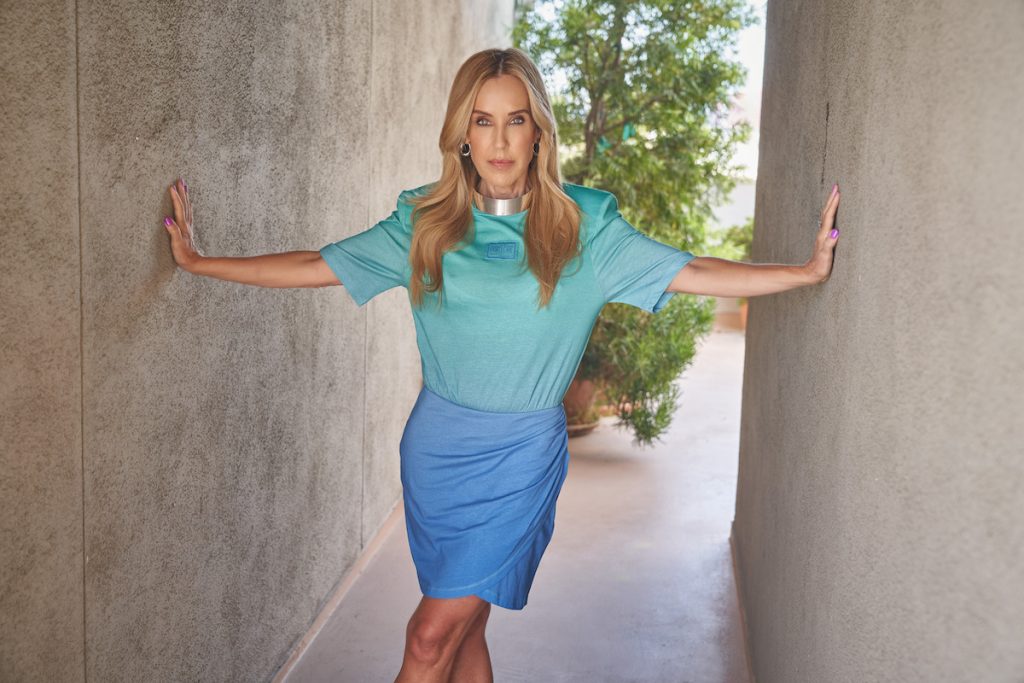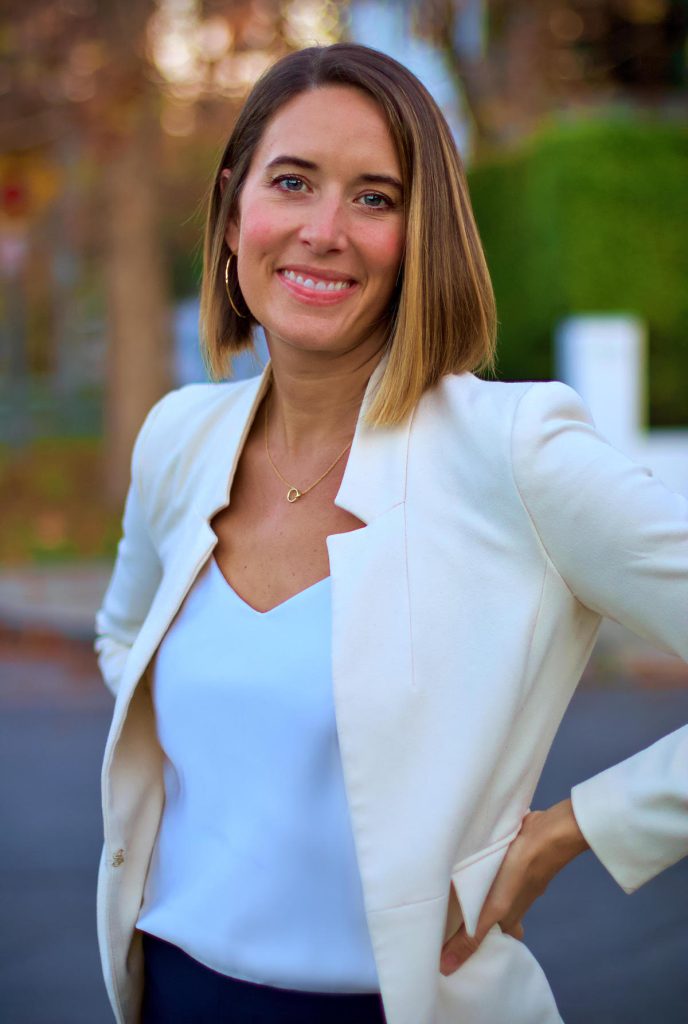Modern Voyeurism: How the Reality TV Boom Is Affecting Our Mental Health
A deep dive into our love affair with reality TV; what it does to our brain, and why it’s bad for our mental health.
It’s hard to overstate the cultural impact that reality TV has delivered over the past three decades since The Real Word premiered on MTV in 1992. From cultivating multi-billion dollar Kardashian businesses to elevating Donald Trump to American President (off the back of his popularity on The Apprentice) the genre has become the endlessly churning engine behind the rise and fall of a powerful new breed of celebrity.
As more and more reality TV shows proliferate our screens, it’s becoming increasingly important to interrogate how this particular form of entertainment is affecting our behaviour. What does watching reality TV do to our brains, compared to scripted shows? How is the machine protecting the mental health of freshly minted stars, emerging into the often negative media frenzy surrounding their newfound fame? And what does it mean for our societal and cultural futures?
The answers are a work in progress, and yet they’re rarely posed in the millions of column inches spent discussing the rotating roster of often disposable stars.
REALITY TV: OUR SECRET OBSESSION
Real Housewives of Toronto cast member and reality TV show producer Kara Alloway has the unique experience of being on both sides of the camera. The self-described ‘villain’ of the single Toronto-based season of the Housewives franchise has channelled our collective fascination with reality TV in her new fiction novel, Most Hated, which tells the story of six women who join a reality TV show.
“Watching reality television scratches this incredible itch that we all have, to judge,” says Alloway. “I think that for the ordinary Joe who’s watching reality television, there is something so satisfying to know that you can be a Kardashian with all the money in the world, and you are still so very similar to that person, and so relatable to that person — because you still have the issues, you still have the troubles, you still have the divorces, you still have the fights within your family. So it’s that relatability.”

Kara Alloway, Real Housewives of Toronto cast member and TV show producer
There have been various studies over the past decade that have probed the reasons behind why we watch reality TV — and what exactly it is that appeals to us as viewers. Interestingly, a penchant for voyeurism was not an intrinsic characteristic of reality TV viewers. Instead, it boiled down to a few shared core values.
One study showed that we watch shows that most align with our value system; that is, if status and self-importance is essential to our self, we will find pleasure in watching those we deem lower in status in order to vicariously facilitate our need to feel superior.
Dr Hayley Watson, Clinical Psychologist and CEO of mental health education program, Open Parachute, builds on this research by explaining how reality TV is comparatively more addictive than scripted entertainment.
“We are drawn to reality TV because it excites us,” says Watson. “Seeing scenarios that depict real life brings up the same feelings that we would feel if we were experiencing the situations ourselves. This releases hormones in our brain that suppress other, less pleasant emotions.
“Similar to a drug addiction, we get used to an overly positive emotional experience and we don’t want to let it go… we crave the experience of watching a show even more, and the cycle continues.”

Dr Hayley Watson, Clinical Psychologist and CEO of Open Parachute
Yet despite our obvious love of the genre, it seems that reality TV is our reluctant bedmate. A recent Australian survey found that a whopping 66 percent of people watch reality TV, but 34 percent of them lied about it to their partner, friends, or family because they felt ashamed to admit they tuned in.
And it’s not just TV; every form of media has come to embrace the lure of ‘reality’ storytelling. Instead of watching celebrities take us through their homes on Cribs, we’re now served with social media clips of “real people” (and the fairly average-by-comparison houses they live in), or read “money diaries” on ‘news’ websites about everyday earners who spend their cash in mind-numbingly pedestrian ways. This ceaseless voyeurism is underscored by celebrities themselves, who produce their own version of reality TV; an accessible and carefully constructed social media presence.
As Mark Andrejevic in The Work of Being Watched puts it: “Reality programming has, paradoxically, undermined the uniqueness of celebrity. The ‘star quality’ that commanded large premiums has been rendered fungible… If reality TV offers to make stars out of real people, its celebrity variant offers to make real people out of stars.”
“If reality TV offers to make stars out of real people, its celebrity variant offers to make real people out of stars.”
Reality TV has served to demystify celebrity, offering anyone willing to participate in the circus the chance to become famous — voraciously feeding those feelings of status and self-importance so prolific amongst reality TV viewers. For, if anyone can be famous, regardless of talent (or lack thereof), then why should we respect talent itself?
AN ARGUMENT AGAINST ‘HARMLESS ENTERTAINMENT’
Although the majority of TV viewers enjoy watching reality programs in one form or another, research has shown that it isn’t the harmless entertainment we think it is. Not only have studies proven it affects our mental health, research has also shown a correlation between watching certain programs and an increase in aggression, manipulation, and narcissism in viewers.
“This often unrealistic portrayal [on reality TV] becomes our new norm”
It also makes us unhappy, with a Mental Health Foundation study finding reality shows such as Love Island increase body-related anxiety, with almost one in four confirming that reality TV makes them worry about body image.
“This often unrealistic portrayal [on reality TV] becomes our new norm,” says Watson. “This causes two things to happen. First, we begin to subconsciously copy the actions that we see on screen, even if they don’t align with our personal values, which can lead to low self-esteem and anxiety. And second, we start to doubt ourselves when our life pales in comparison to what we have witnessed, which can lead to depression.
“Of course, all of this can happen when we watch any content, but reality TV is particularly impactful because it is pitched to the viewer as ‘real’.”
“We have this little trick,” says Alloway, “and we go: no, this is real life. And it’s easier for us to judge because we think we’re not watching something that’s scripted. Not that I’m saying reality television is scripted, but we forget that — like any good content — it has to be set up. It’s so manufactured, for lack of a better word.
“I mean, there were some incredibly well-educated peers of mine that would say to me, ‘So what was it like having the cameras 24/7 in your life?’, and I would go ‘No, really? Do you think that’s what happens? Like, the two sound technicians and the boom operator [are with me 24/7]?’”
In the end, despite the misnomer, we still see it as real. It’s a complicated paradox that allows us to hold two simultaneous ideas at once: that it is, in fact, real — while also being heavily scripted.
But perhaps more concerning than our inability to see where reality ends and the fourth wall begins, is the way in which reality TV can warp the way we see the world off-screen. This has long-ranging implications for our cultural perceptions and social behaviours — with research charting everything from how TV constructs a disturbing alternate reality in the minds of consumers, to the rise of antisocial behaviour. Or, to put it more bluntly, it tells us that reality TV is making us meaner.
The consequences can be even more insidious and acute when you’re also the star of the show. Many ‘contestants’ face long-term mental health challenges, often the result of being thrust into embarrassing, or damaging, experiences in full public view. Reality TV favourite Love Island saw four suicides alone linked to the show and splashed across the media; two former contestants, one contestant’s partner, and former host Caroline Flack.
Shockingly, they are only four of a reported thirty-eight suspected suicides linked to reality TV participants worldwide.
A SYMBIOTIC RELATIONSHIP: MEDIA AND THE CULTURAL IMPACT OF REALITY TV
There has been much said about the cultural impact of reality TV, mainly centred around a Boomer-esque narrative of the brain-deadening content contained within. (As a side note, research has shown no correlation between intelligence and reality TV consumption.)
However, it’s less the TV shows themselves, and more the media-driven narrative around the shows, that has the most cultural impact. Not only do the media participate in the creation of reality celebrities, they also exploit that interest into an endless cycle of headlines and stories — both on screen, and off.
“The result,” Andrejevic explains, “is that the symbiotic relationship between entertainment coverage and the culture industry has served reality TV well… The runaway success of the genre itself has predictably generated its own publicity.
“There are behind-the-scenes shows about the making of hit formats, news magazine ruminations on the public fascination with instant celebrity, and endless tabloid and ‘serious’ magazine covers devoted to the latest popular reality format. Indeed, the appeal of the success story of reality TV echoes that of its stars: the rise from low-budget obscurity to people’s favourite.”
And when the media is left to construct those continuing narratives, long after the show airs its finale, they favour the same archetypes that TV producers crave in casting: the hero, and of course, the villain. Unfortunately, what’s left on the table is often just a stack of salacious headlines and a less than admirable (and certainly not accurate) representation of minorities, diverse backgrounds, and POC.
The Real Housewives of Atlanta, for instance, has a questionable past when it comes to perpetuating racial bias — which is particularly interesting when you consider it was one of the first to feature an almost-all African American cast. The third city to join the Real Housewives, it’s sometimes-problematic early storylines often centred the only white cast member as the victim in racially charged narratives (see Kim v Kandi, the ‘black orphan’ incident, the ‘wig pulling’ incident.)
It’s an issue that the Real Housewives franchise has been attempting to correct ever since, but still seems to miss the mark every time — mainly due to POC cast members unwilling to be painted into a stereotyped corner (see Real Housewives of Beverly Hills, Garcelle v Kyle in the “missing” donation to charity, Crystal v almost everyone.)
“One of the biggest issues around representation on reality TV is the lack of authentic representation.”
Alicia Vrajlal, Senior Culture Editor at Refinery29 Australia, is one of the country’s most prolific culture commentators, often writing about the intersection between reality TV, diversity, and representation.
“One of the biggest issues around representation on reality TV is the lack of authentic representation,” says Vrajlal. “While some television shows are trying to cast with more cultural diversity in mind, it also matters how these people of colour are then portrayed once they’re on our screens. Tokenistic casting for the sake of ticking a diversity box, not giving people of colour much airtime, or playing into cultural stigmas or stereotypes in their portrayals, are all problematic.
“The stakes are often much higher for people of colour when they appear on a reality TV show. They may be going against familial expectations and cultural norms, and this puts an immense emotional and mental pressure on them.”

Alicia Vrajlal, Senior Culture Editor, Refinery29 Australia
Even beyond reality TV’s often negative cultural impacts that prop up the media spin cycle, is another looming darkness that perhaps delivers an even stronger symbiosis: the connection between reality TV and social media. As trolling reaches epic peaks across multiple social platforms, our collective mental health is declining in line with the ratings of tired reality franchises like The Bachelor.
“The most important thing we can do to limit the negative impacts is to pay attention to how we feel before, during, and after we watch content,” says Watson. “If you notice you are using reality TV as an escape from uncomfortable feelings, consider how you might be able to process those feelings rather than suppress them.”
“If you feel anxious and stressed when you finish watching a show, take some time to think about what you just watched, and remind yourself what’s true and not true for you… Treat reality TV like ice cream. It can be exciting and enjoyable, and it’s fine to indulge if you want to, but consuming it regularly in large quantities will have an impact on you.”
TALLY THE VOTES: HOW MUCH LONGER CAN REALITY TV SURVIVE?
What started as a genuine attempt at revolutionary documentary TV programming (The Real World) has progressed through farce (The Simple Life), family drama (The Kardashians) and satire (Unreal), to arrive at an inescapable endpoint: boredom. Nowadays, the explosion of reality TV programs on our screens is wearing thin for consumers, becoming self-referential and repetitive. Reality TV is beginning to eat itself.
Self-parodying takes on the genre are emerging, in order to stand out amongst the cacophony of competition — like America’s Joe Millionaire, which sees women duped into competing over the affections of a low-earning construction worker presented as an eligible millionaire. Meanwhile, The Real Housewives franchise is becoming increasingly un-real in their attempts to fabricate drama and keep viewers tuned in. Even sure-fire hits like Love Island are steadily losing viewers, fuelled by an increasingly socially conscious audience that demands more from their cast.
In the meantime, the chasm between the rich and the not-rich continues to widen — so is it any wonder that the democratically-inclined of us wish to see more diversity and representation on our screens? How do we participate in culture if culture is solely reserved for the privileged?
In the end, we crave to create our own culture, in our own image — and perhaps that will spur us to wrestle back power, and to impact the structural cultural systems within which we live. After all, representation matters; even when it’s reflecting our worst selves back at us, and maybe even when it’s clumsy and bias-firming. One thing’s for sure: reality TV needs a reality check, or we’ll simply tune out.
This article features in the June-August 2023 issue of Rolling Stone AU/NZ. If you’re eager to get your hands on it, then now is the time to sign up for a subscription.
Whether you’re a fan of music, you’re a supporter of the local music scene, or you enjoy the thrill of print and long form journalism, then Rolling Stone Australia is exactly what you need. Click the link below for more information regarding a magazine subscription.







































